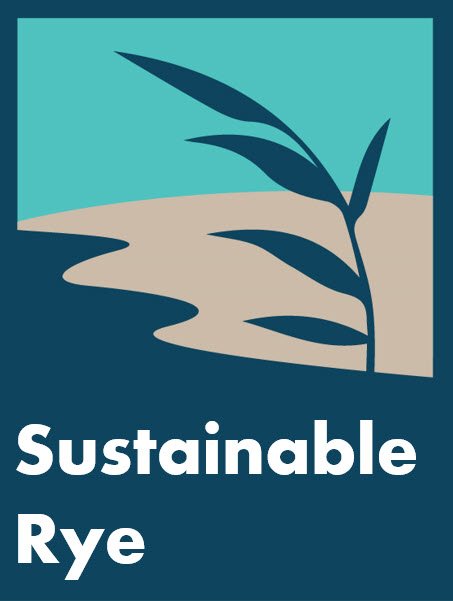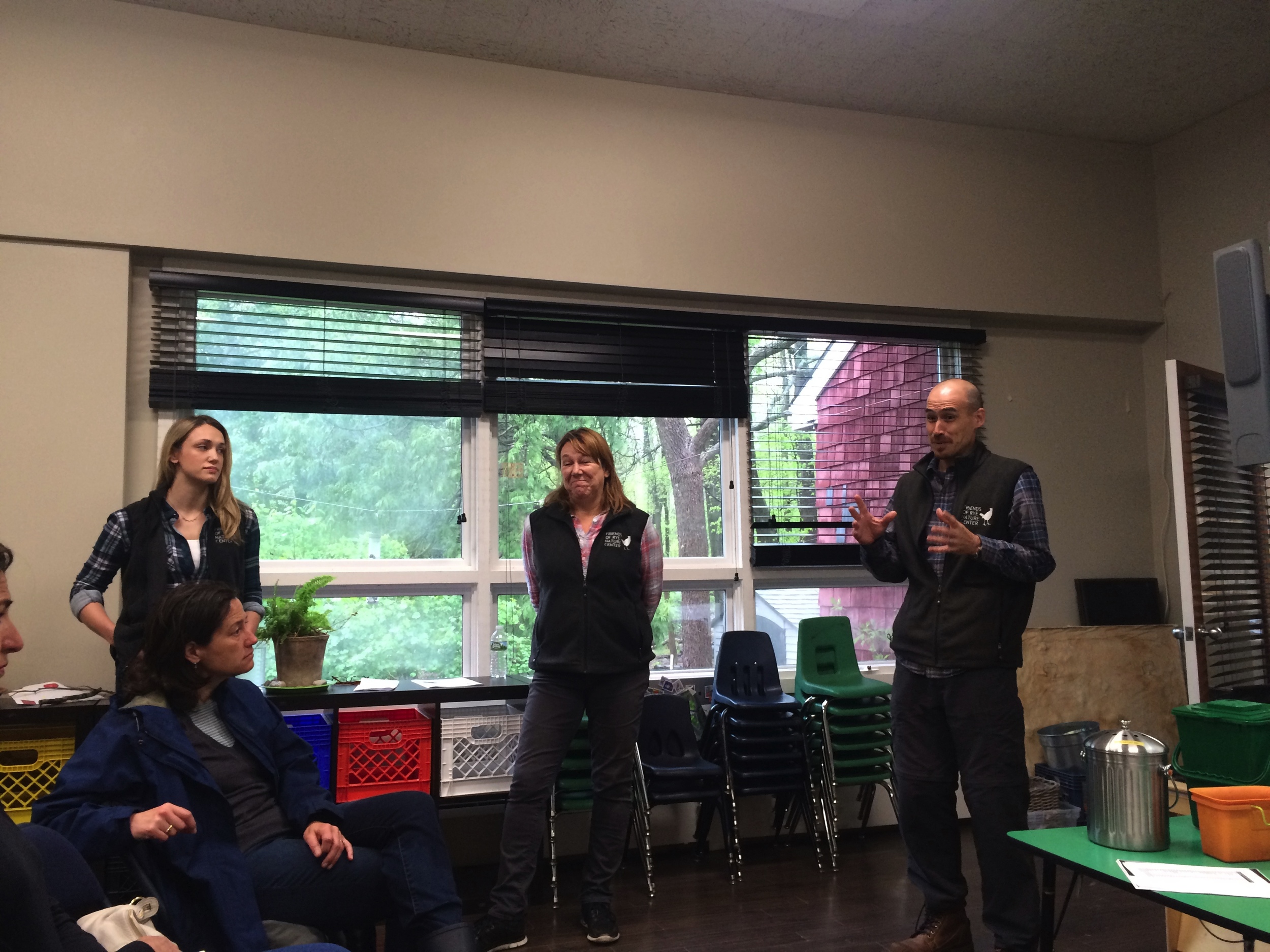
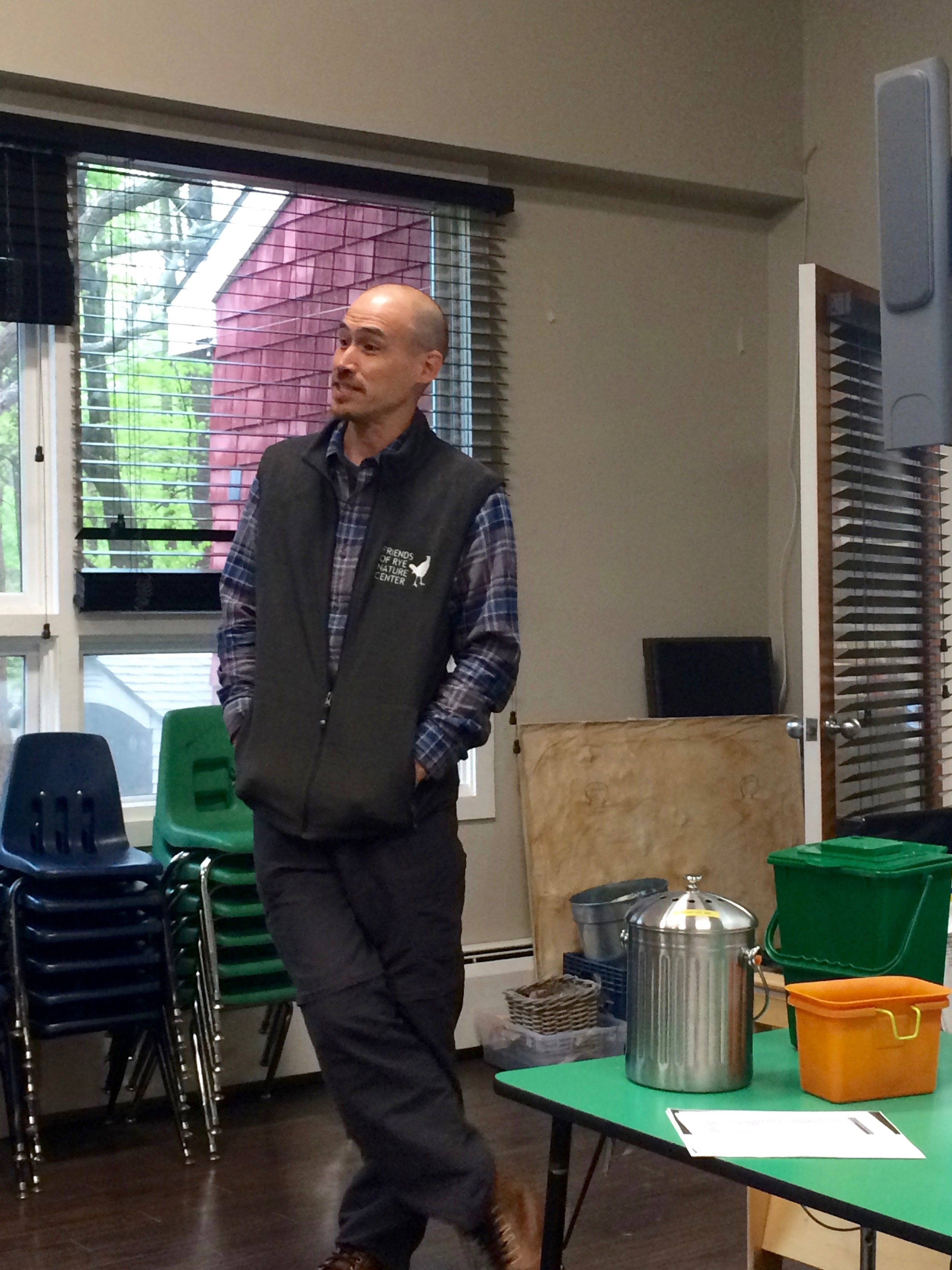

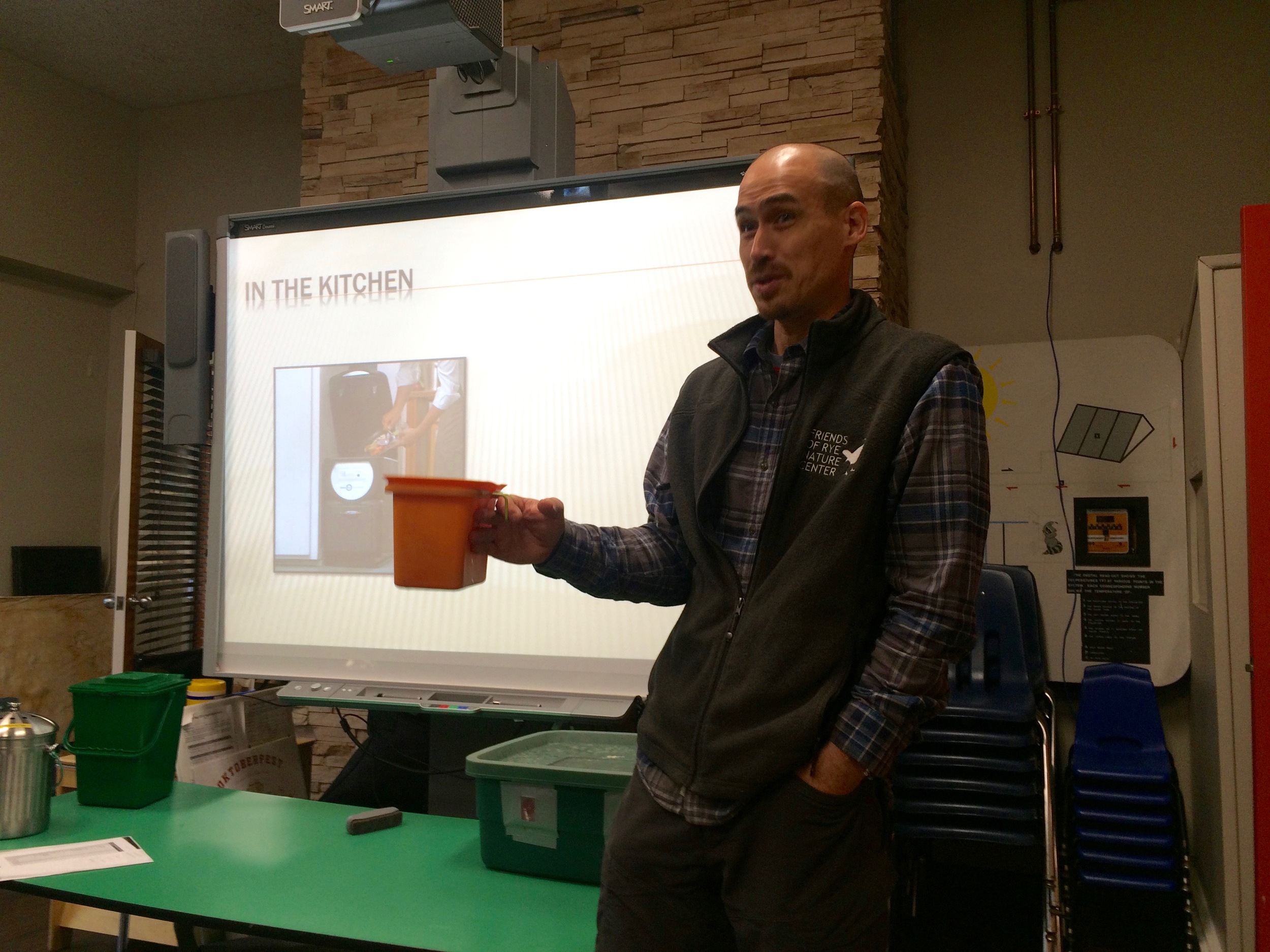
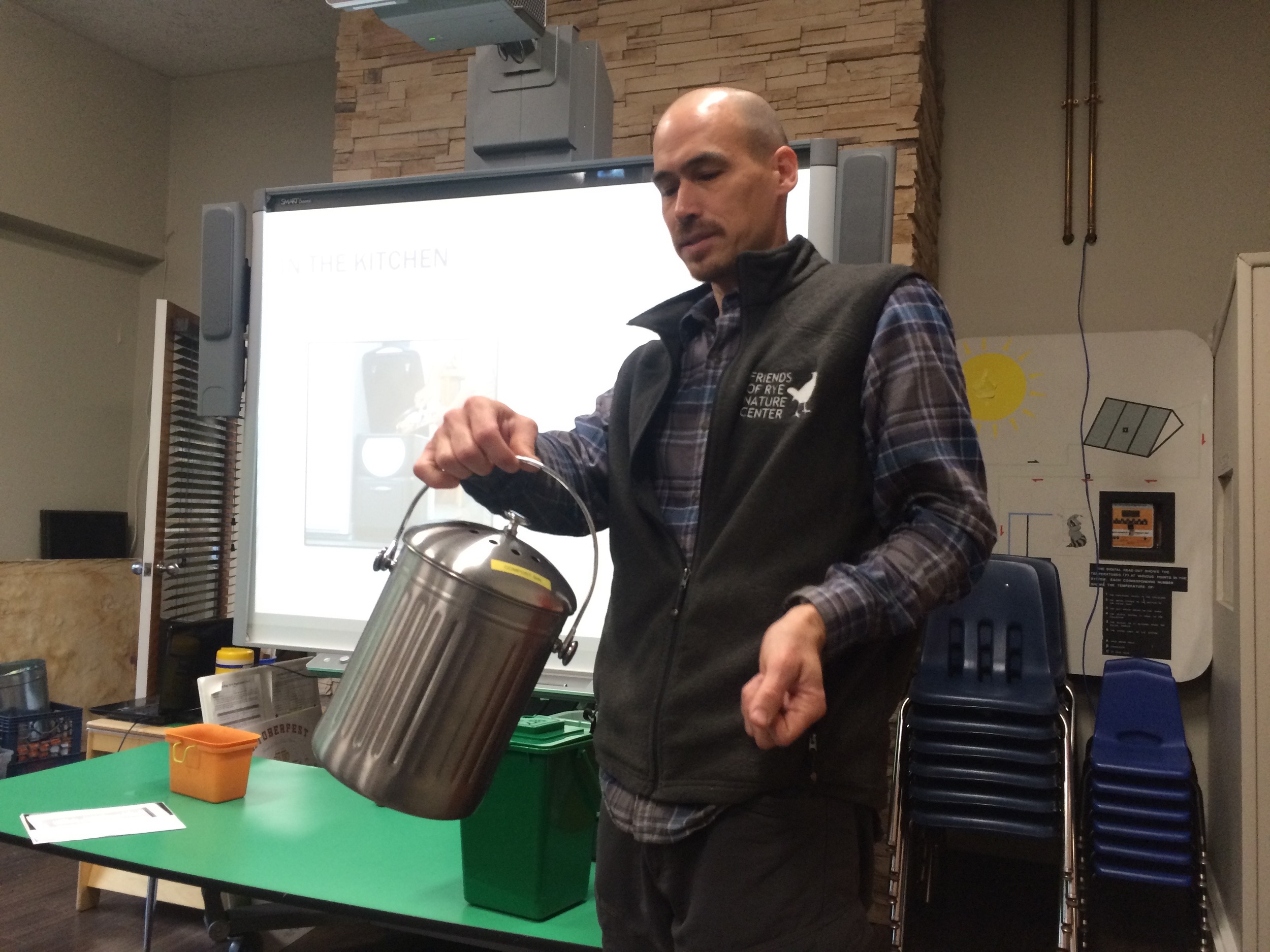
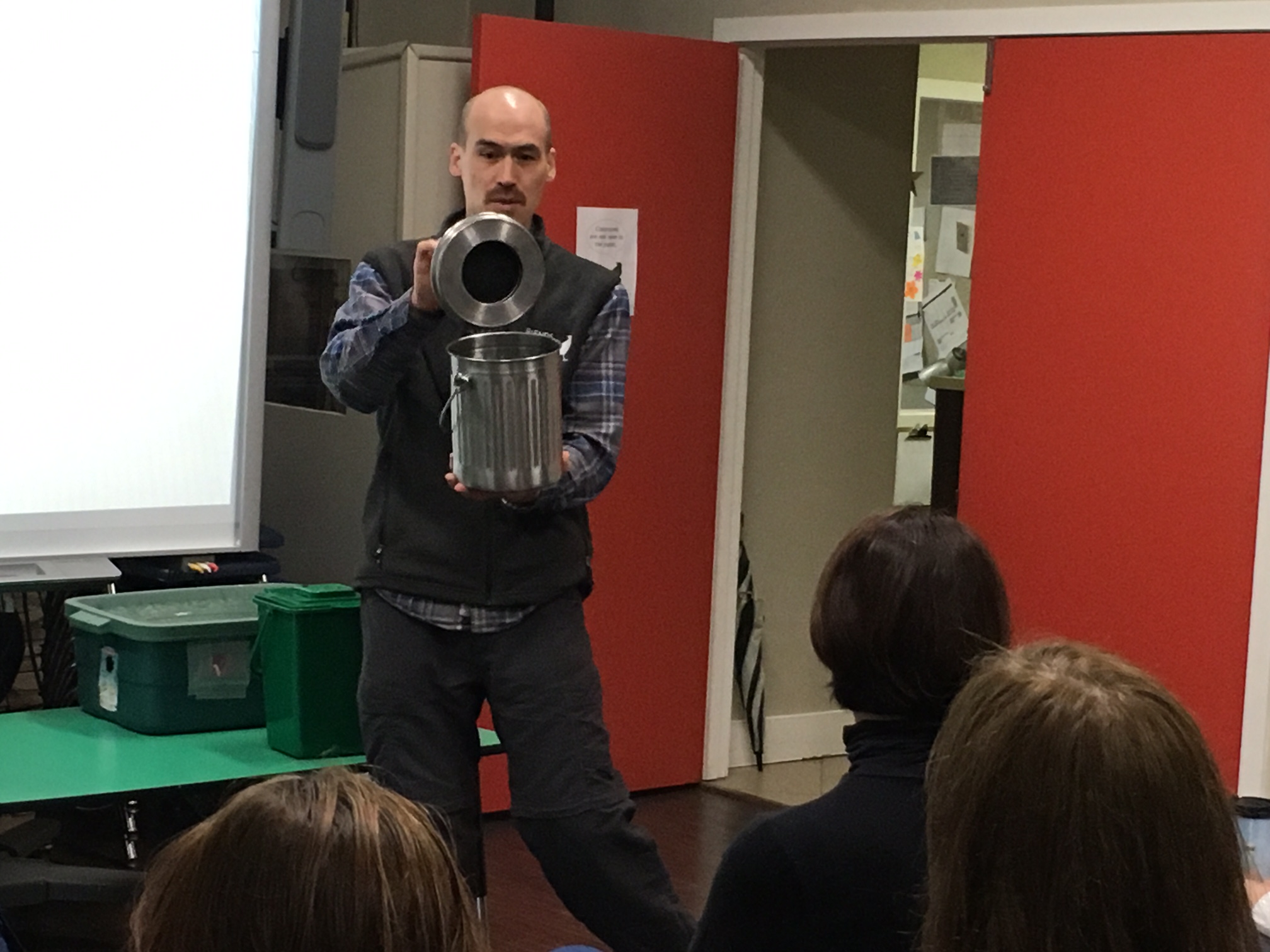

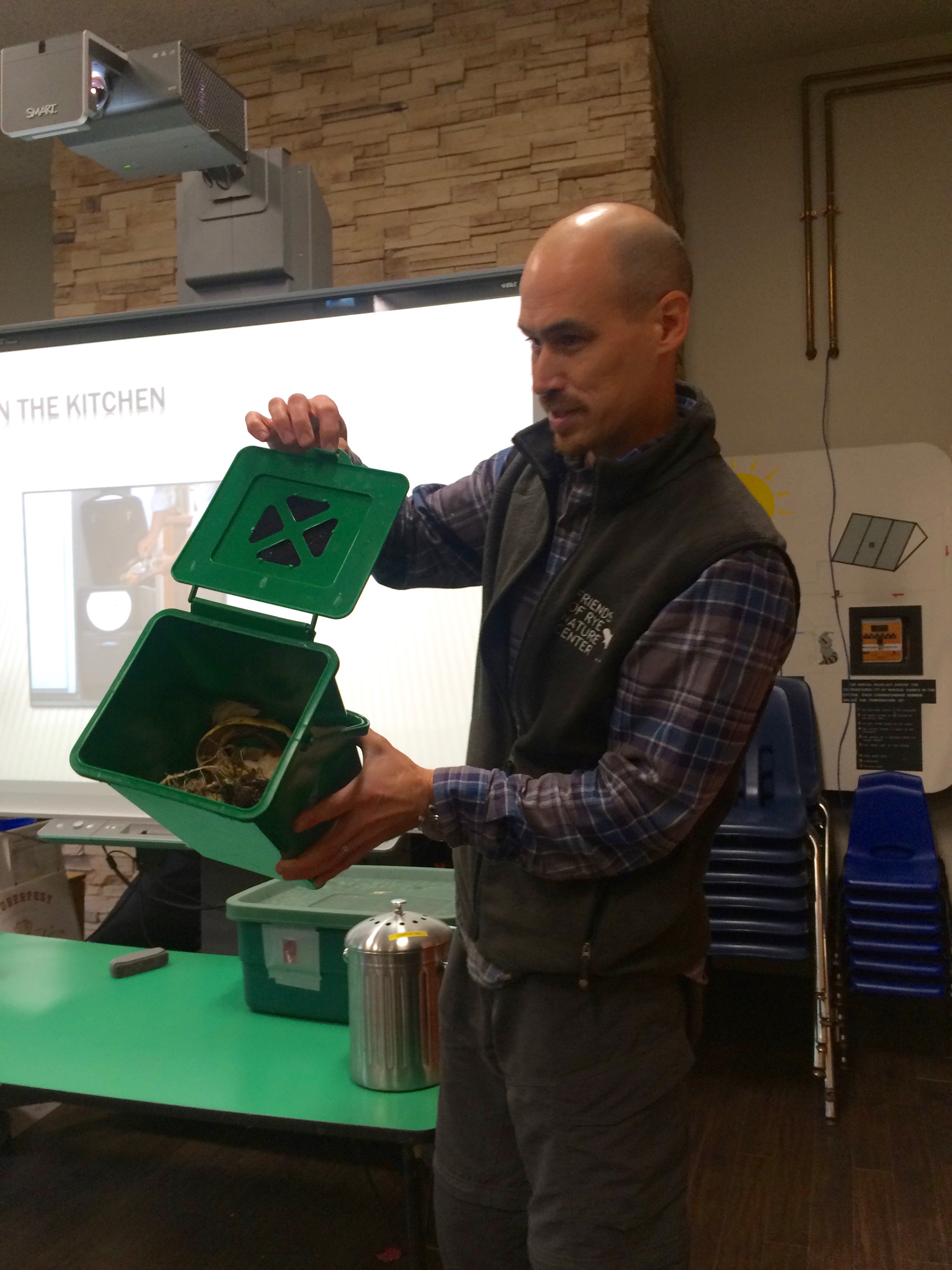
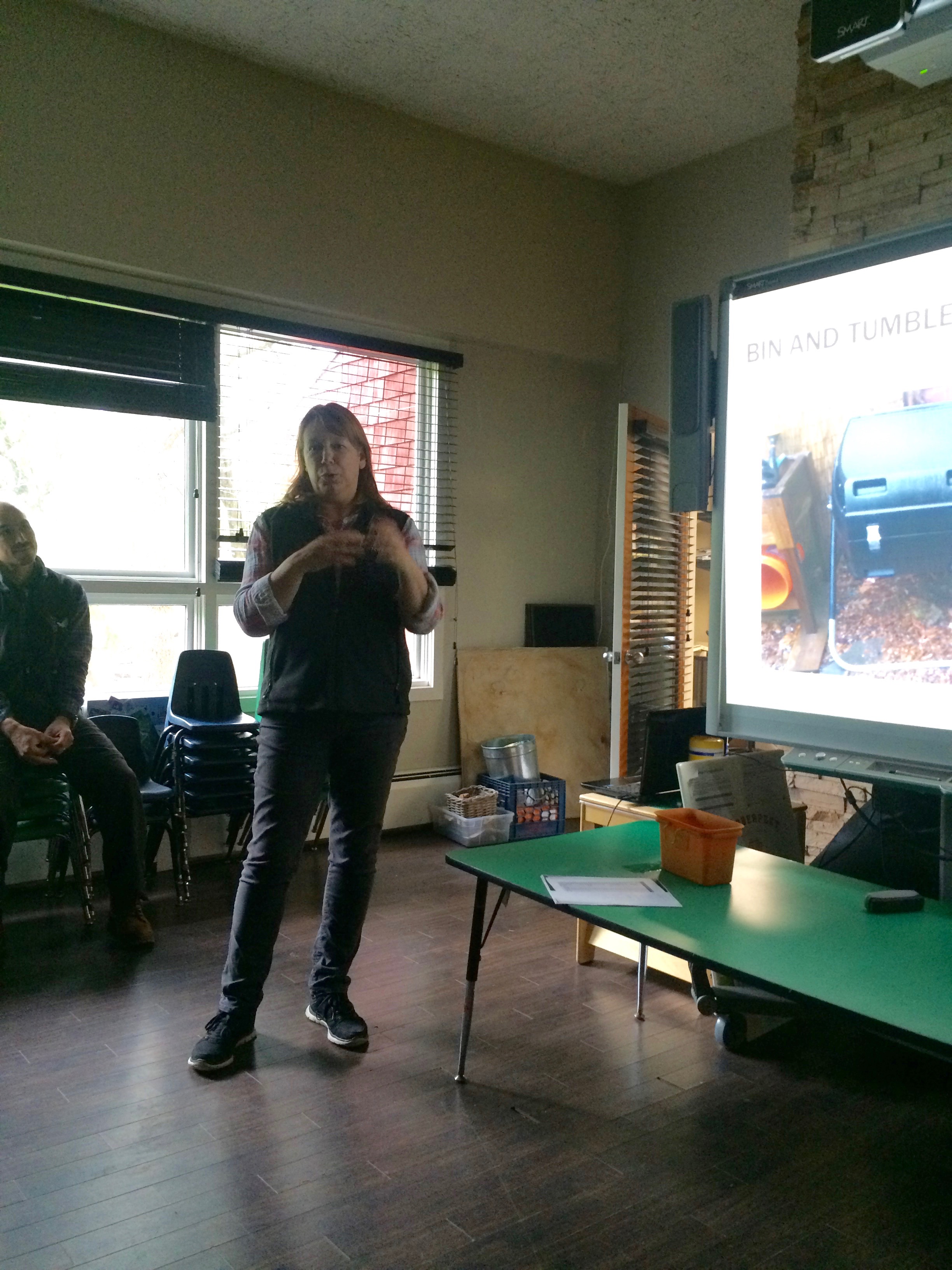


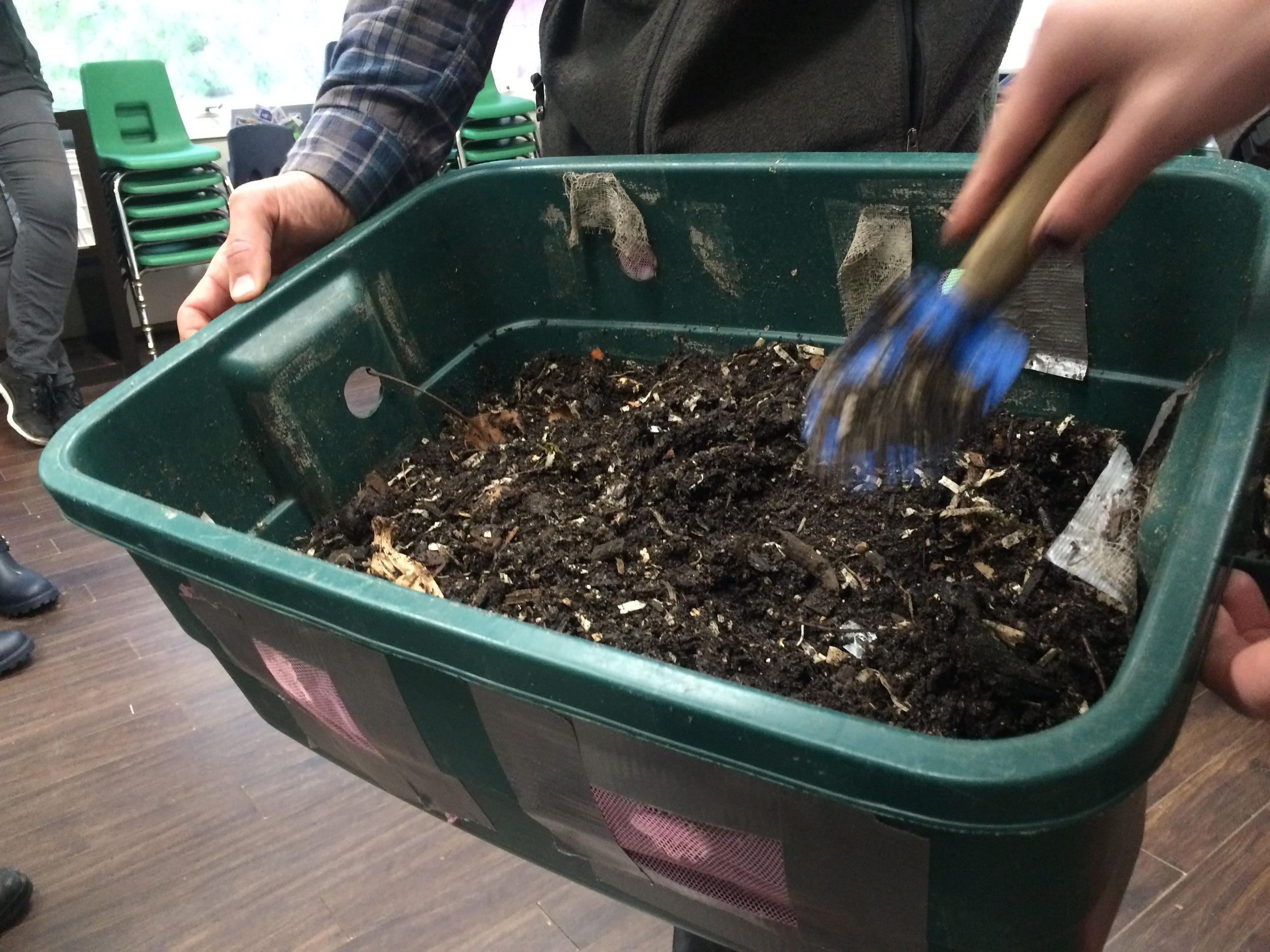
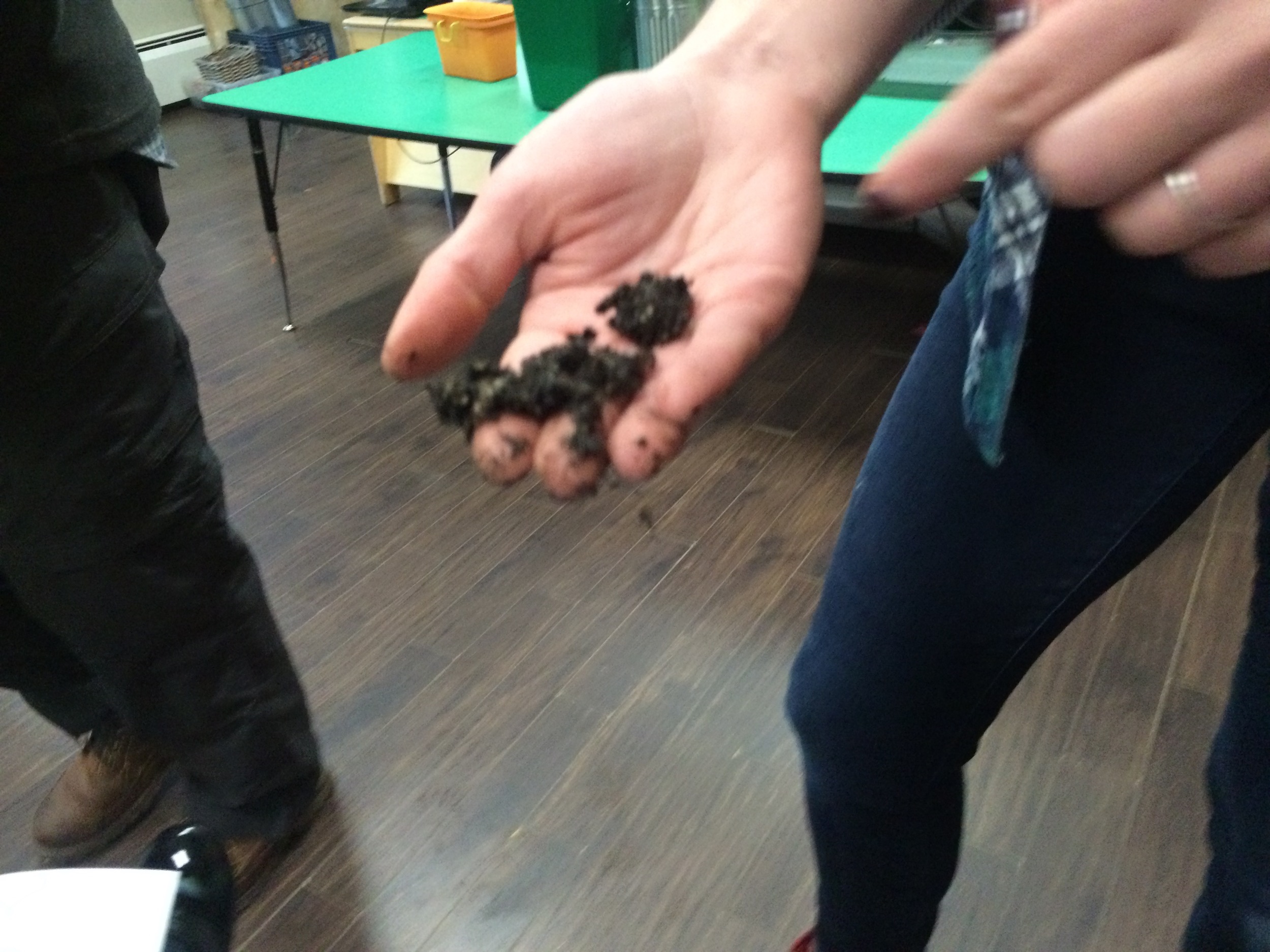
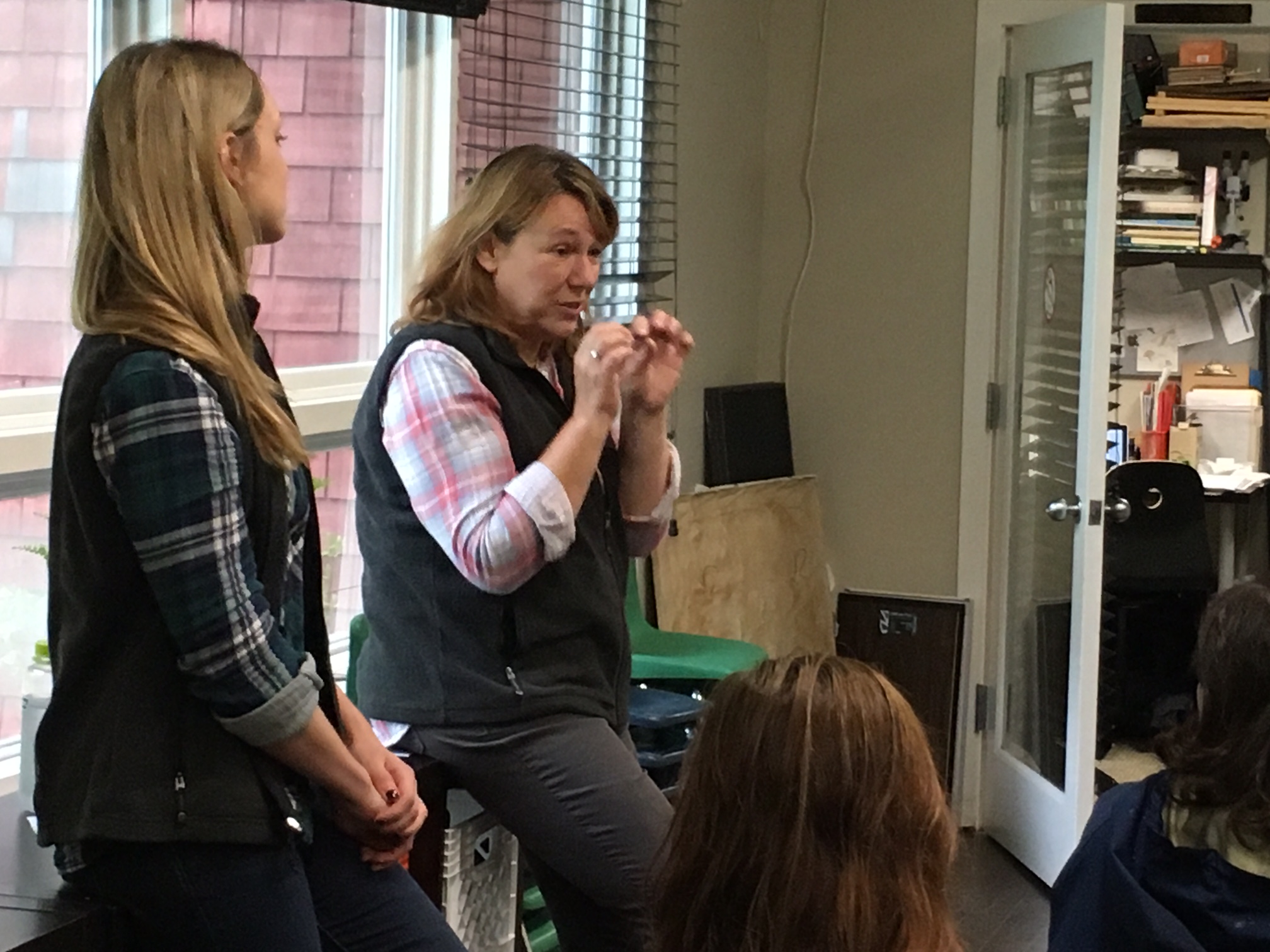
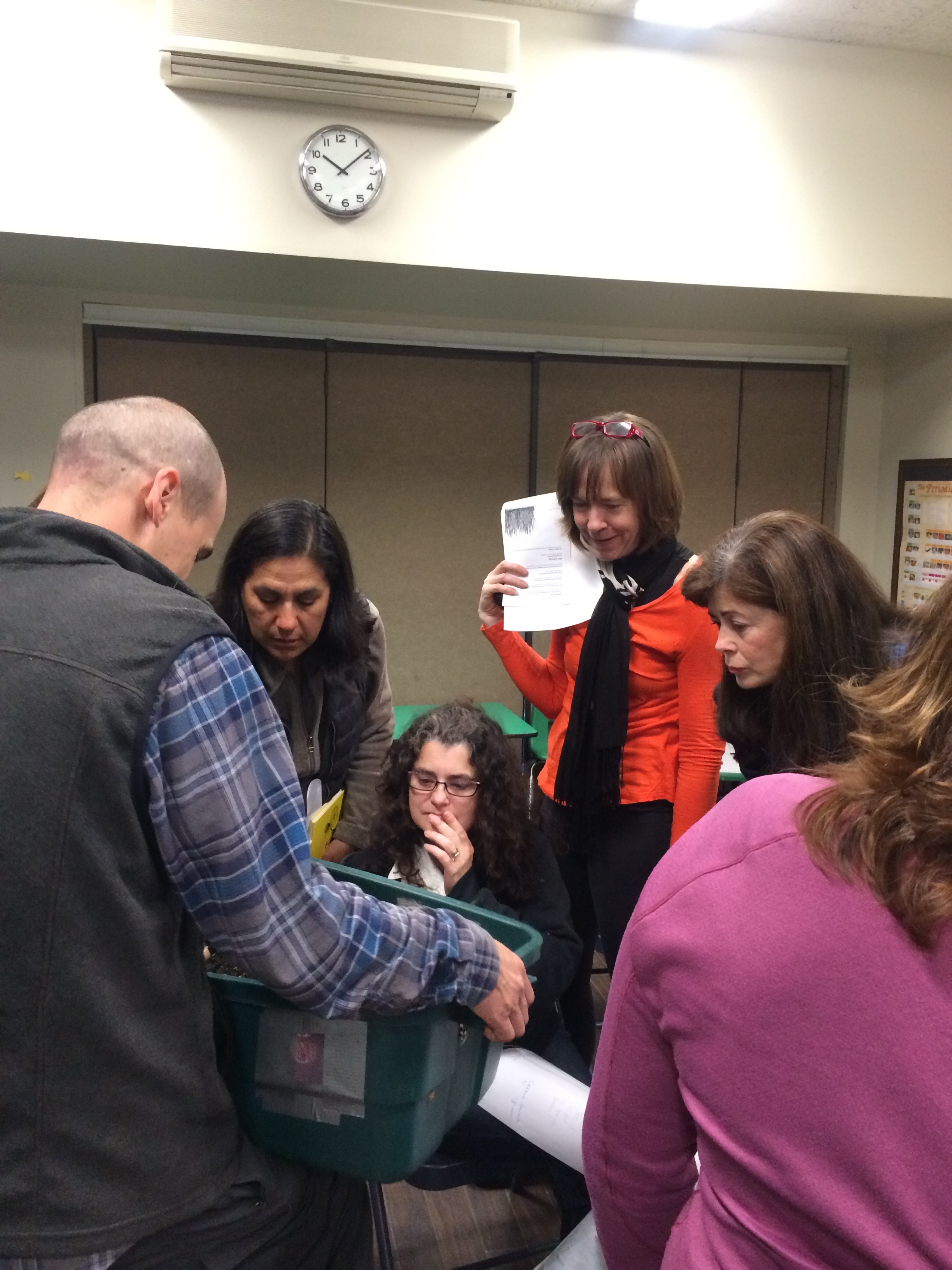
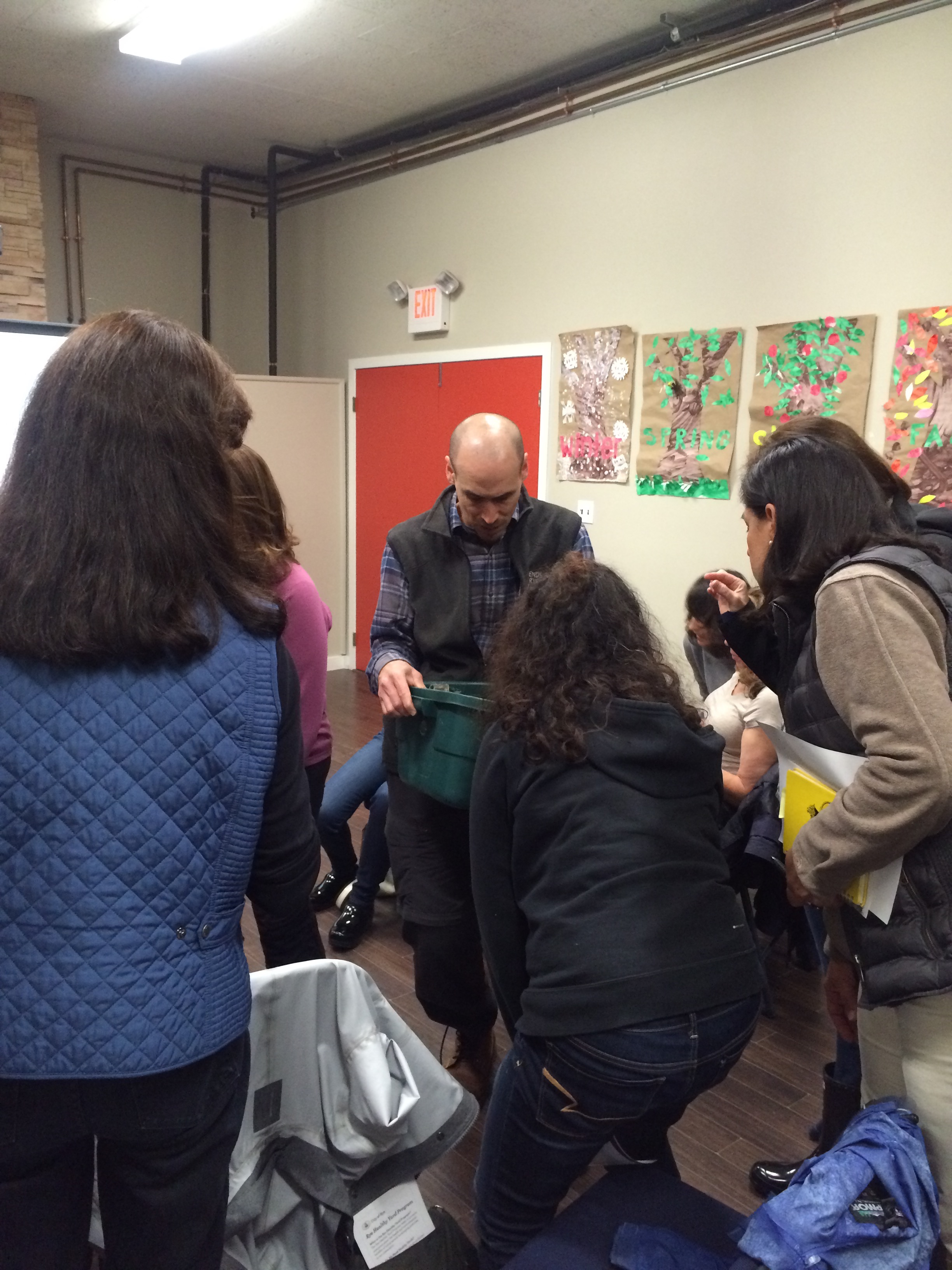
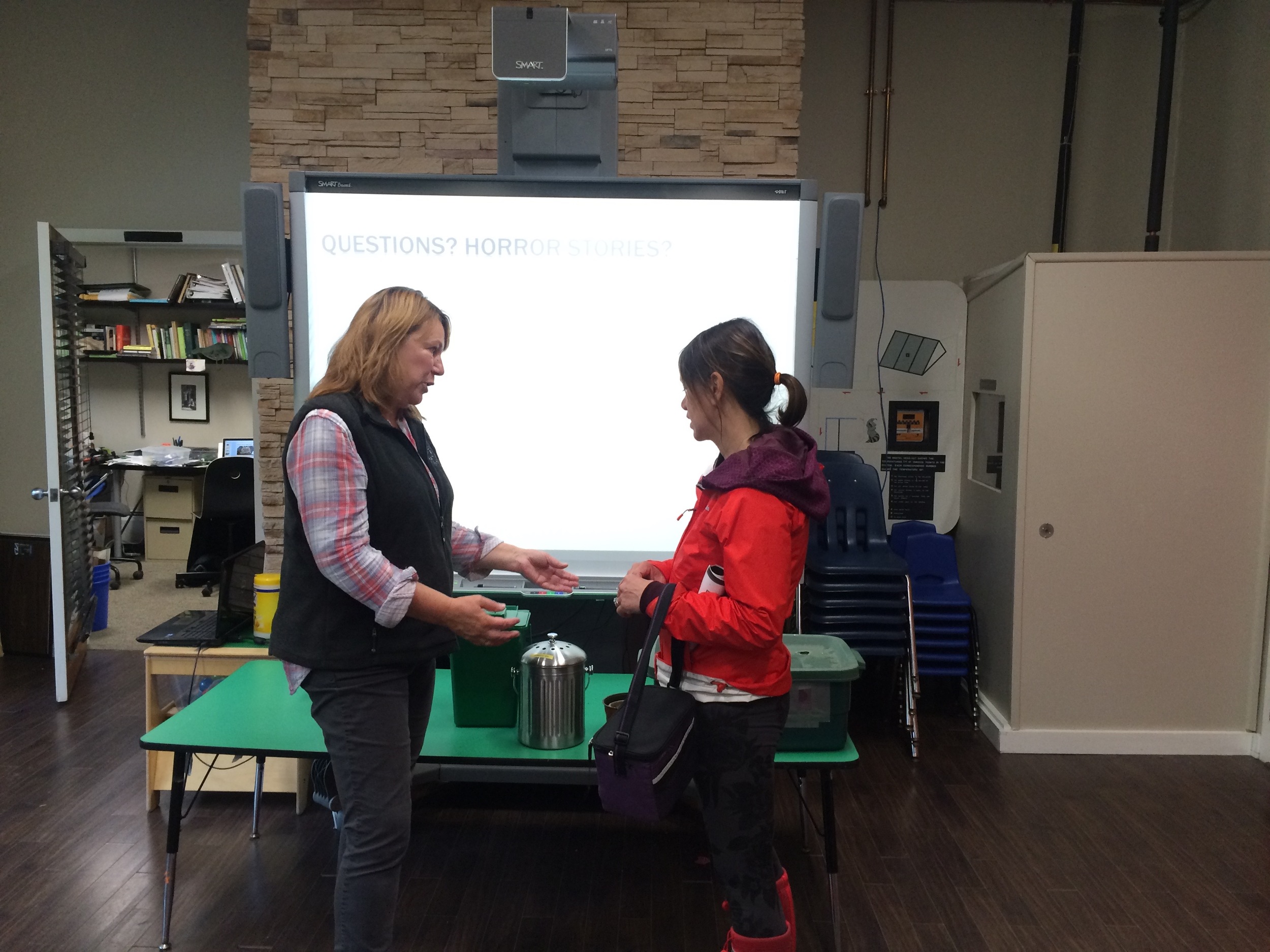
A large group of brave souls ventured out into the rain storm on Friday to learn how to compost from Rye Nature Center experts, Taro Ietaka, Courtney Rothaus and Annette Hein.
The workshop was part informative introduction and part therapy session to ease the fears of those who might be intimidated by the process. Inspired by Midland school's new composting program, Taro said he decided to organize a workshop to share his knowledge of composting with others in Rye.
Taro began by explaining the mechanics of composting - what to include, what not to include, optimum carbon/nitrogen ratios - and how to avoid some of the pitfalls of composting, chief of which is smelly, decomposing waste. He showed us how he stores scraps in the freezer before transporting them outside. He also provided examples of different kitchen compost collectors and bins.
Annette showed us some of the outdoor compost bins, explaining the pros and cons of each. She recommends at least two bins to store waste in different stages of decomposition.
Courtney concluded by presenting an alternative composting option: vermicomposting (or worm composting, in layman's terms). She described how, with minimal fuss and attention, specialty worms (red wigglers) can be employed to decompose home waste, including paper. With vermicomposting, no sifting or turning is necessary. Homeowners can purchase vermicomposters and worms online to begin composting at home.
Rye Nature Center executive director Christine Siller ended the presentation by stressing the important point that as a by-product of composting, we're helping to achieve a critical goal of reducing waste from the general waste stream.
An enormous thank you to the Rye Nature Center, the presenters, and Christine Siller, for organizing this informative event!
Check out our Resources page for more information on composting. Let's all start composting!
